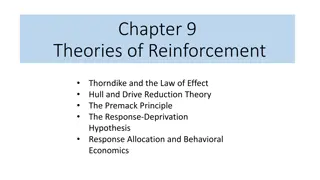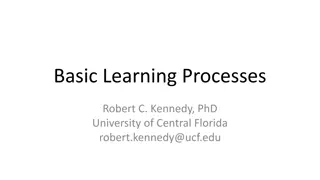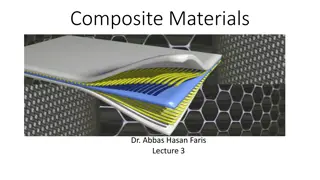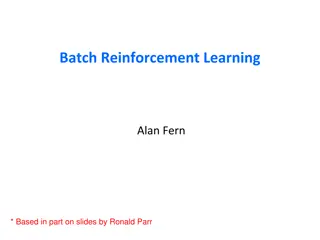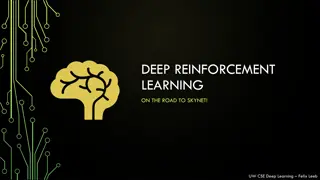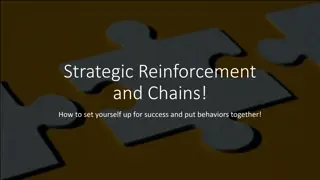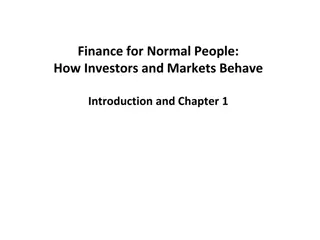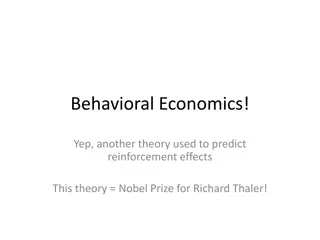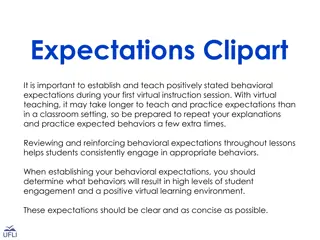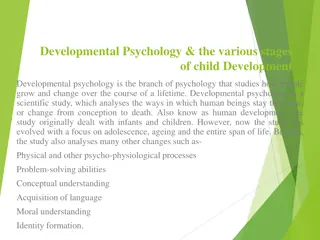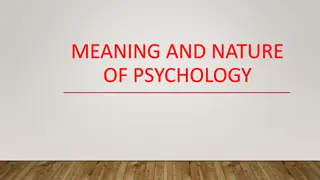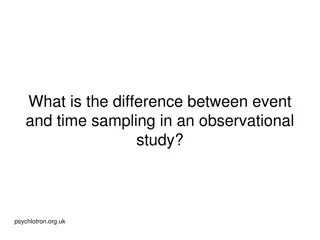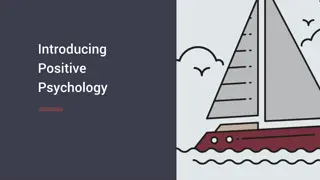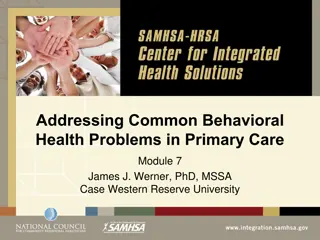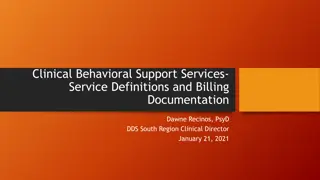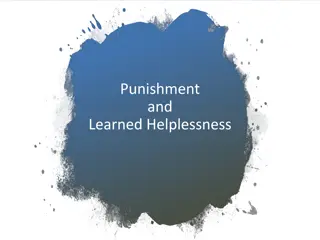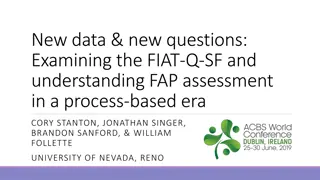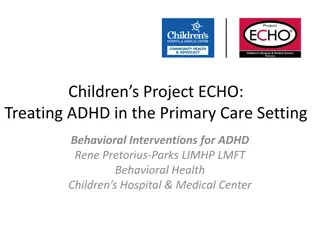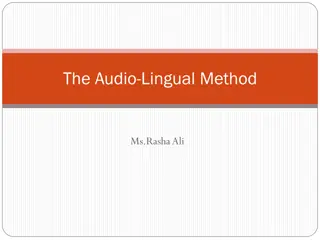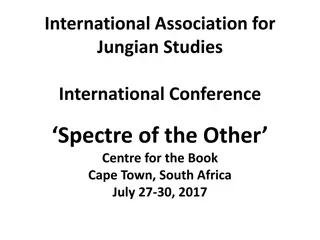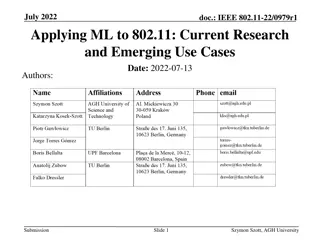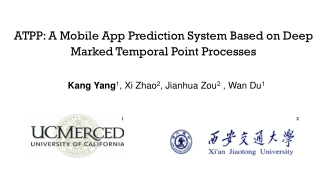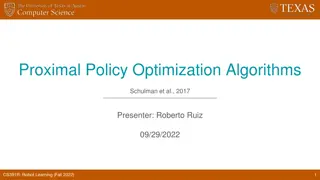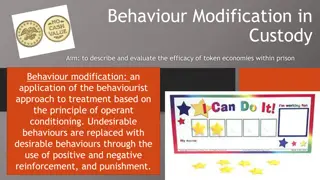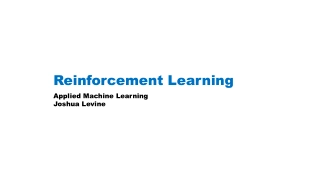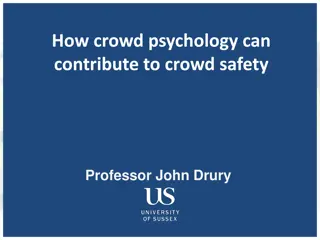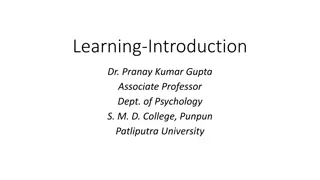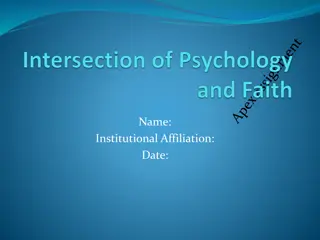Understanding Reinforcement and Association in Behavioral Psychology
This content delves into the concepts of reinforcement, association, and operant conditioning in behavioral psychology. It discusses how actions are influenced by rewards and consequences, the differences between association and reinforcement, and classical conditioning models like the Rescorla-Wagner model. Additionally, it explores the MDP framework and provides an example of an MDP scenario. The content emphasizes the importance of adapting strategies in reinforcement learning to optimize value and action policies iteratively.
Download Presentation

Please find below an Image/Link to download the presentation.
The content on the website is provided AS IS for your information and personal use only. It may not be sold, licensed, or shared on other websites without obtaining consent from the author. Download presentation by click this link. If you encounter any issues during the download, it is possible that the publisher has removed the file from their server.
E N D
Presentation Transcript
Reinforcement CS786 25th January 2022
Association vs reinforcement Association: things that occur together in the world, occur together in the mind Tested using classical conditioning Environment acts on the observer Reinforcement: actions that are rewarded become desirable in future Tested using operant/instrumental conditioning Observer acts on the environment
Operant conditioning Observers act upon the world, and face consequences Consequences can be interpreted as rewards
Modeling classical conditioning Most popular approach for years was the Rescorla-Wagner model Some versions replace Vtot with Vx; what is the difference? Could reproduce a number of empirical observations in classical conditioning experiments http://users.ipfw.edu/abbott/314/Rescorla2.htm
Can modify to accommodate reward prediction Original equation Update size based on associative strength available + 1 n n V V V = + ( ) X X tot Bush-Mosteller model of reinforcement, for action a + 1 n n n n V V V R = + ( ) a a a
The MDP framework An MDP is the tuple {S,A,R,P} Set of states (S) Set of actions (A) Possible rewards (R) for each {s,a} combination P(s |s,a) is the probability of reaching state s given you took action a while in state s
An example MDP States: hungry, taste-deprived, full, happy, unhappy Actions: go to hostel mess, delivery from restaurant, make Maggi Reward(state, action) R(hungry, mess) = 10 R(taste-deprived, mess) = -100 State transition probability: Hungry to full, maggi = 0.4 Taste-deprived to happy, mess = 0
Solution strategy Update value and action policy iteratively https://towardsdatascience.com/getting-started-with-markov-decision-processes- reinforcement-learning-ada7b4572ffb



